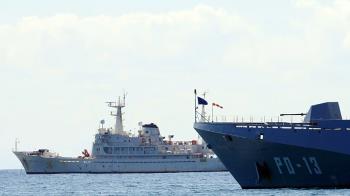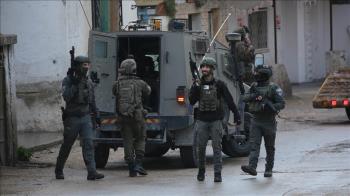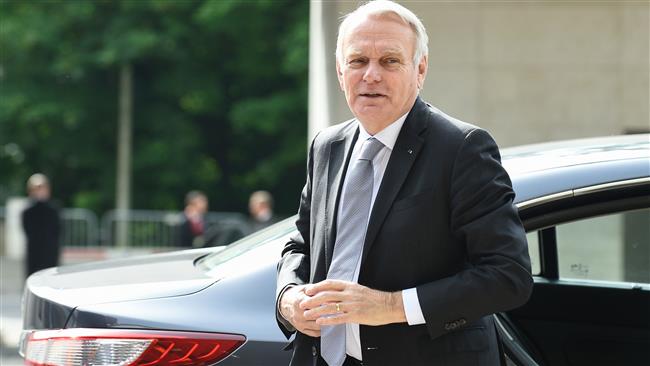Alwaght- French Foreign Minister Jean-Marc Ayrault has reportedly visited Hezbollah parliamentarians during his two-day trip to Lebanon, according the Lebanese news site Al-Joumhouria.
The site quoted “well-informed” sources who claimed the French FM would meet a Hezbollah delegation including lawmaker Ali Fayyad as well as Ammar al-Musawi, who heads Hezbollah’s international relations.
If true, the visit coincides with the 10th anniversary of the 33-day war against Lebanon which resulted in the defeat of the Israelis by Hezbollah back in 2006. The timing of this meeting sends some powerful signals to observers who perceive the rare occasion as a form of acknowledging Hezbollah’s role in the region.
Hezbollah has emerged as a regional power that cannot be eliminated from the picture. So instead of confronting the resistance, some states—it appears—are aware that accepting the group as a major player in the region is a more feasible resolution. Hezbollah has proven itself to be a fierce opponent in the battlefield both on the Israeli front and against terrorist groups in Syria.
Notably, Hezbollah has been branded as a terrorist group by many Western and Arab states for reasons pertaining to the security of the occupying Israeli regime or that of foreign terrorist plots in other Arab states such as Syria.
In 2013, the European Union listed its military wing on a terror list but distinguished it from its political arm. On the other hand, some Arab states went as far as blacklisting the entire group. At the onset of 2016, the [Persian]-Gulf Cooperation Council labelled Hezbollah a terrorist organization for alleged "terrorist acts and incitement in Syria, Yemen and in Iraq".
Despite these attempts to obstruct Hezbollah’s activities, the resistance movement has continued working toward its objectives and presently its influence in Lebanon and the region has not been affected.
Domestically, it still takes part in elections, its organizations are still running, and its supporters remain faithful. Regionally, Hezbollah enjoys Iran’s unwavering support, it is scoring victories in Iraq and Syria, and is prepared to confront the Israeli regime.
Critically, the world is in a perilous place. Safety has become a luxury with terrorism striking almost every end of the world. From Orlando, to Paris, to Brussels, to Sirte, to Aleppo, to Istanbul, to Mosul; ISIS is spreading violence, hatred, and bloodshed.
In the region where ISIS is most concentrated, however, Hezbollah has proven to be a tough adversary to the group. Hezbollah fighters have come face to face with terrorist militants and have dealt them more than a few blows on the battlefield. In addition, unlike ISIS, Hezbollah does not commit crimes against humanity and neither does it perpetrate attacks against those who disagree with its ideology but rather respects and even protects others. The group uses its weapons against oppressors.
At a time like this, it seems France finds that Hezbollah can be of use in helping limit the infiltration of terrorists and their system of beliefs into Europe, especially following the deadly attacks in Paris.
Others claim that since this is not the first time that a high-ranking French official has met with Hezbollah members, the visit is another attempt by the French to restore their historical role in the region, particularly in Lebanon where they formerly had mandate.
Amid the speculations, fumes of anger rose from the Israeli Foreign Ministry which verbalized its discontent with the visit.
"It is too bad that the French Foreign Minister did not consult with Arab countries that do not distinguish between Hezbollah's military wing and its political wing. It is obvious that Foreign Minister Ayrault would never meet with the 'political wing' of ISIS,” the Israeli Foreign Ministry said in a statement on Tuesday.
This statement clarified two things. First, the Arab states that have blacklisted Hezbollah entirely have been applauded by the Israelis. This means that both stand on the same side against Hezbollah. Second, that Tel Aviv has not ceased to equate Hezbollah with ISIS in a bid to demonize the first, taking into consideration that Hezbollah fights against the Israeli regime and the latter has not so much as lifted a finger against it.
The fact that the Israelis urged the French to follow the example of Arab states indicates the extent to which the Israelis and many Arabs have been joining hands against Hezbollah. Once, all Arabs stood together against the force that occupied Palestine, but today we see Arabs cooperating with the occupiers against their own. Even Western states such as France are more willing to hold talks with Hezbollah than the Arab states that have failed the resistance in all of its forms.



























